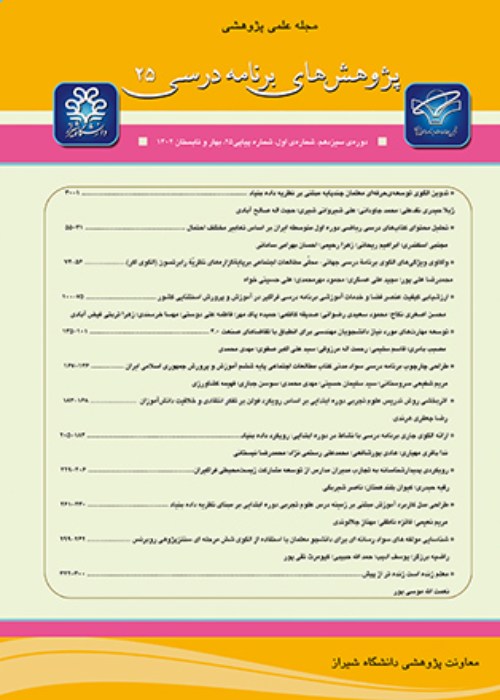A Review of the Characteristics of Higher Education Curriculum in the Era of the Fourth Industrial Revolution
The world community is currently experiencing a fourth industrial revolution (4IR), which is established on the third industrial revolution (digital revolution) and the convergence of technologies. This movement blurs the lines between physical, digital, and biological technologies. In fact, digitalization is the backbone of the 4IR, through which different technologies and disciplines of science converge, leading to the emergence of new sciences and technologies, such as artificial intelligence, virtual reality, IoT, and big data technologies. In a general process, the phenomenon of the 4IR brings about great changes in various aspects of life, including new working styles, new technologies, and new products, which are all driven by and receptive to creativity. One of the most important elements of higher education is the curriculum, which is the basis for the formation of learning. In the era of the 4IR, due to the profound effects brought about, challenges presented by, and opportunities afforded by the evolving technologies, curricula play a crucial role in adapting students to the accelerating pace of technological changes. Higher education curricula need to work in tandem with the wave of changes introduced by the 4IR. In this regard, higher education curricula are expected to help students, as an important part of the society and workforce, develop the knowledge, abilities, and skills needed to live and work in the era of the 4IR. The passivity of the curriculum in the face of this revolution gives grounds for backwardness. In view of the above and given the importance of higher education curricula, studying curricula from different perspectives and aspects is vital. Therefore, in the present study, the characteristics of higher education curricula in the era of the 4IR are laid out and discussed.
This study employed a qualitative content analysis that involved the inductive approach. The statistical population of the study included valid scientific sources (i.e., documents/books/articles) related to higher education curricula in the era of the 4IR during 2016-2021. This period was selected since the 4IR is a new concept, no relevant sources related to it were found before 2016. Out of 25 identified sources, nine that best met the objectives of this study were selected as the study sample using purposive sampling. Themes were used as the unit of analysis. Data were collected using search engines, such as Google Scholar, and databases, such as Emerald, Eric, Science Direct, Springer, etc., with the help of indexes and keywords.
The results of the content analysis revealed 12 main organizing themes as follows: continuous learning: at any time in any place, individualized and personalized education, globallyconnected education, platform thinking based on new technologies, social curriculum based on moral, social, and cultural responsibilities, skills development with emphasis on soft skills, integration of higher education and industry 4.0 in the context of technology 4.0, innovative education, project-oriented learning, teacher as a guide and consultant, reevaluation of the curriculum consistent with the era of the 4IR, and convergence of sciences. At a higher level, the main organizing themes were subsumed under a more comprehensive theme called curriculum paradigm shift.
Discussion and Conclusions:
In sum, it can be stated that the advances and changes in the field of science and technology in the era of the 4IR will continue to push not only scientific but also geographical boundaries with an increasing speed, giving birth to novel areas of science. Therefore, universities and higher education institutes should constantly review and assess their curricula from different perspectives to adapt to the rapid pace of technological advances and orient their outlook on the future. It must be highlighted that in the era of the 4IR, the incorporation of advanced technologies and digital education in the curricula is more than a purely technical concern. In other words, a technology-enabled curriculum is not a simple matter of digitizing existing content and making it available online. Rather, it serves as a fertile platform that can create new learning cultures and enable students to deal with challenges and grasp the opportunities that have only begun to exist due to digitization.
- حق عضویت دریافتی صرف حمایت از نشریات عضو و نگهداری، تکمیل و توسعه مگیران میشود.
- پرداخت حق اشتراک و دانلود مقالات اجازه بازنشر آن در سایر رسانههای چاپی و دیجیتال را به کاربر نمیدهد.




